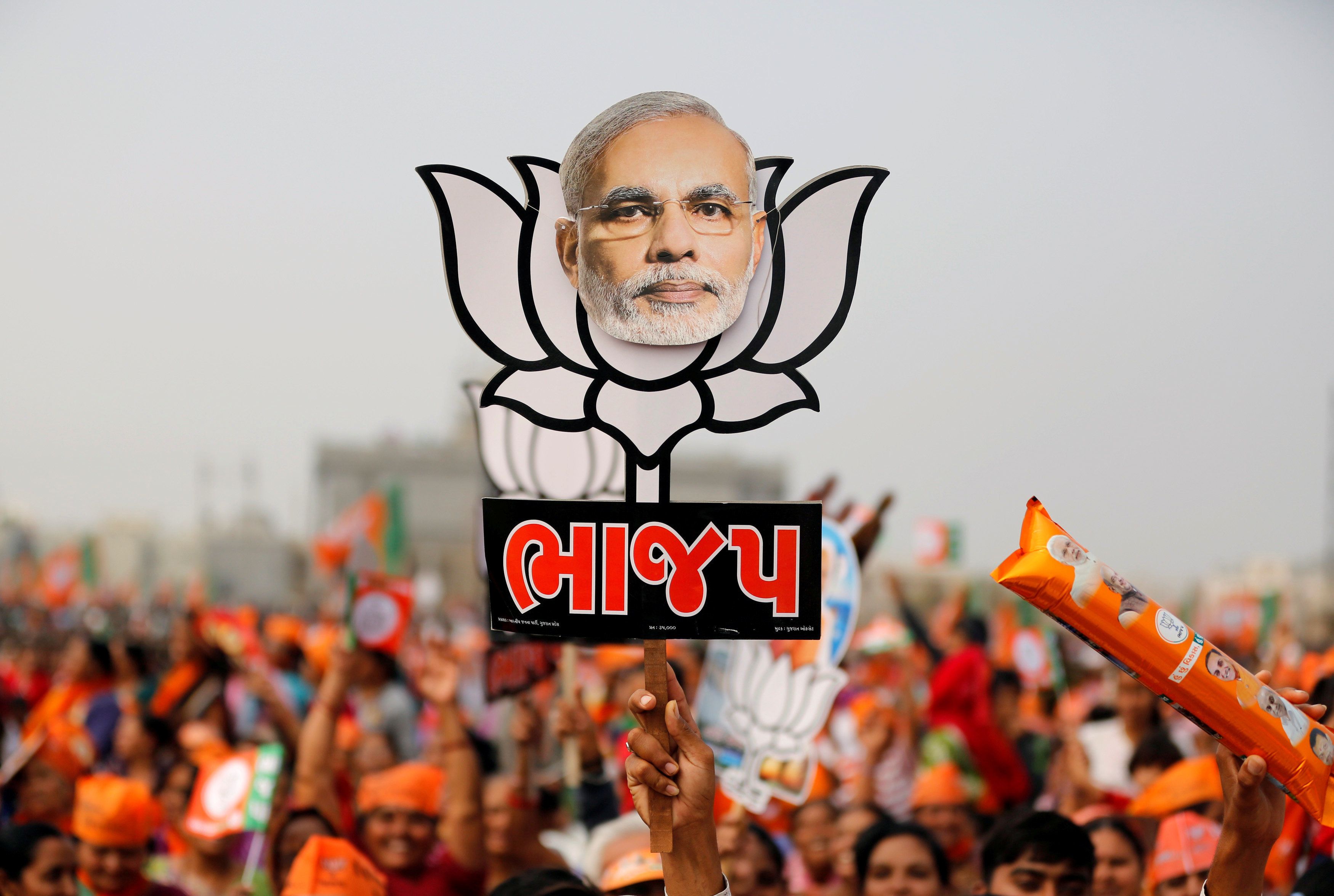Over the past four years, and despite a famously long list of chronic problems, India has emerged as a standout among emerging-market powers. As China's growth slows, Russia wrestles with sanctions and lower oil prices, and Brazil struggles to overcome recession and scandal, India has powered forward.
Since he became prime minister in 2014, Narendra Modi has cut through a famously immovable bureaucracy to help hundreds of millions of the world's poorest, most isolated people gain access to essential services, invested large sums in much-needed upgrades to India's notoriously rickety infrastructure, drawn foreign investment into once-gated sectors of the economy, and made it easier for Indians and foreigners to do business.
But Modi's hold on Indian politics, which has enabled him to implement many of these positive changes, may be starting to slip. In a series of recent state-level elections, his Bharatiya Janata Party (BJP) suffered big losses in the "Hindu-heartland" regions thought to be key centers of its electoral support. The verdict comes as a big hit for Modi and his party as he seeks to win re-election next year, and it raises the further question of whether India can continue to upstage its peers.
Two stories from this week reflect the tough challenges ahead:
Independent institutions: On Monday, the leader of India's central bank (RBI) abruptly resigned following a fight with the government over its independence from political influence. The government then quickly named a career bureaucrat as his replacement. Ahead of national elections next April or May, the government wants the RBI to pump more money into the economy—by making it easier for banks to offer bigger loans, for example. While growth may go up, investor confidence in responsible management of India's economy will now go down.
Mounting environmental problems: A report from The Financial Times reveals that India has become "the most polluted country on Earth." According to the FT, India's air quality is "far worse than China's ever was" as "more than 40 percent of Indians are exposed to five times the safe limit of particulate matter in the air they breathe." This is exactly the sort of problem that requires strong central leadership to force local authorities to abide by stricter rules for the good of all.
Modi is still very popular, but there's a risk that a disappointing election performance next year will leave him in charge of a BJP-led government that depends on an unwieldy coalition of small regional parties. If so, it'll become much harder for him to take actions that impose politically risky costs. In the meantime, Modi may find himself more reliant on support from Hindu extremists.
Given India's growing importance, for Asia and the global economy, these are stories worth watching.
